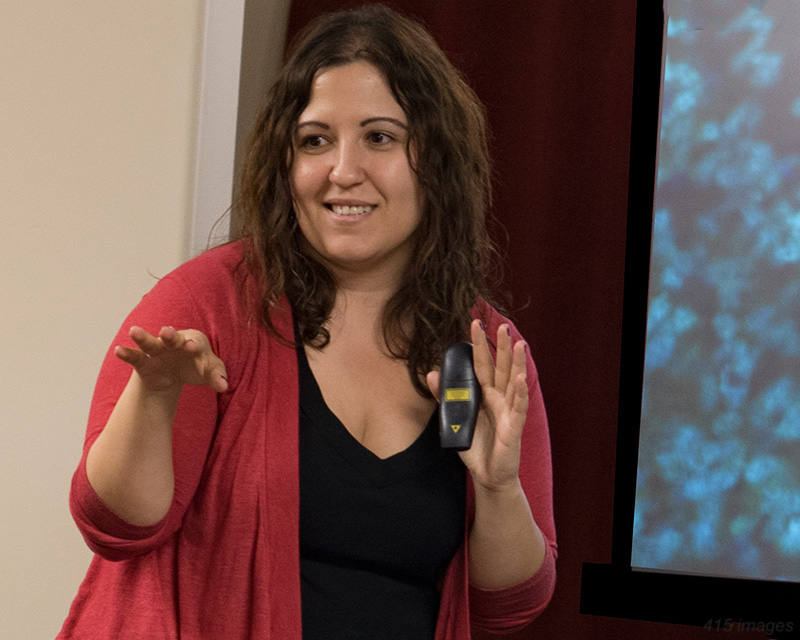Monday, July 25, 2016

Georgia Panagiotakos, Ph.D, is one of those hotshot biomedical researchers at UCSF. A Sandler Fellow at UCSF, she runs a lab that studies how the brain develops (neurogenesis). Her talk introduced us to neurogenesis and to the research that her lab and others are doing. Our synapses may never be the same.
Neurons, or nerve cells, are the building blocks of the brain: specialized cells that process and transmit information in the brain through electrical and chemical signals. Georgia studies the cellular and molecular processes by which neurons develop. Why do we care? Because we must understand in detail how neurons in the brain develop normally if we are going to be able to fix the abnormalities that result when they don’t—disorders such as mental retardation, schizophrenia, and learning disabilities.
After explaining brain development generally, Georgia reviewed the different types of research being done in the field, including her lab’s area of interest: understanding how electrical signals in the developing brain regulate the development of specific types of neurons. Patiently answering a wide range of questions for more than 45 minutes (while not a single person in the full house left the room), she also explained, among other things, how she directs the work of her lab and her responsibilities when she is not in the lab. More than a mini-biology class, her talk was a briefing on how brain science happens in the real world.
Georgia is a native of Brooklyn, New York (which should never be confused with New York, New York, i.e. Manhattan). After earning her undergraduate degree at MIT, she spent four years doing research at Memorial Sloan Kettering Cancer Center in Manhattan (which is rarely confused with Brooklyn). At Sloan Kettering she decided to pursue a career in researching the development of the brain. After earning a Ph.D at Stanford, she was appointed a Sandler Faculty Fellow at UCSF in 2014. Sandler Fellows are exceptionally promising young scientists who have recently obtained a Ph.D or M.D. As Sandler Fellows, they have the rare opportunity to start independent research groups without having finished their post-doctoral training.